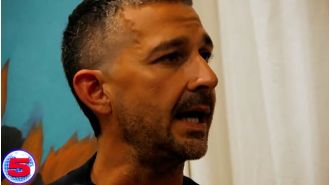Being alone used to make me feel embarrassed, but then I realized it was not something to be ashamed of.
I used to see it as my fault and feel embarrassed, but now I don't.

Loneliness is a common aspect of being human and there should be no shame in admitting it. I must confess, I used to judge people who appeared lonely, thinking that they were sad or lacking in joy. For a long time, I saw isolation as a sign of failure or weakness, a reflection of one's character. As an outgoing person with a strong sense of self, I never had trouble making new connections and was always the life of the party. The more friends I had, the more validated I felt. Feeling lonely was not an option for me. I associated it with being unlovable or undesirable. Even when I did feel lonely, I would never express it to anyone because I was embarrassed.
But now, I want to break that silence and speak up because I have come to realize that loneliness is a natural part of being human and there is no reason to be ashamed of it. During the pandemic, I noticed how inherently alone I felt. Given the circumstances, it was hardly surprising and I expected these feelings to fade away once the lockdown ended. But, to my surprise, I found myself slipping further into a black hole. Instead of trying to understand where this feeling came from, I started telling myself that this was just who I was now. I even started joking that I had turned into a cat lady, avoiding making plans or reaching out to friends. But deep down, I was still seeking a connection with others, even if it was just a simple hello to a shop clerk or admiring someone's pet.
I had made loneliness my identity, but the truth is that no one is inherently lonely. It is a product of our external circumstances. In my case, most of my close friends in London had moved away due to various reasons such as Brexit, work, or family commitments. Being 38 and single also meant that my social circle had drastically reduced. Many of my friends were now married with kids and did not have the same amount of time to hang out as they used to. Additionally, my line of work did not help foster meaningful connections as people often saw me as a means to network or get work opportunities rather than just being friends.
But as I reflected more on it, I realized that all of these were just the cherry on top of a life that has been lonely from the beginning. Having a disability has been a significant catalyst for my isolation. As a child, I always felt left out. I was never invited to sleepovers or excluded from group activities because of inaccessible infrastructures. I couldn't even go out to the playground on my own and had to wait for my support assistant to finish their lunch before they could take me outside to play with my peers. I also had to miss classes for hydro or physiotherapy sessions, and when I had a broken bone, I would be off school for weeks. A significant portion of my childhood was spent alone in my bedroom, playing with my toys.
Unfortunately, as a disabled adult, this continued. We may work from home, not have access to an accessible vehicle, or receive support from local authorities to maintain our independence. As we grow older, our parents or caregivers also age, and as they pass away, we lose another lifeline to the outside world. It can even be something as simple as not having accessible homes of friends, as I experienced when I had to cancel plans for a birthday party due to the house not being step-free.
Friendships require consistency and effort to thrive, but this can be challenging when your energy and emotional cup vary each day due to a disability. I always felt excluded from mainstream society, but I kept pushing and fighting against it for years. However, with the pandemic, I guess I was just tired of fighting. That's why I have felt so lonely in recent years. The anxiety and emotional labor that came with keeping myself included and sociable had taken its toll. It eventually led me to turn to solitude, but that only made me miserable. I needed to find a balance.
Now, I have changed my perspective towards loneliness. I no longer judge others who suffer from it harshly, and I no longer feel shame when I experience it myself. After all, I am not alone in my loneliness. Instead, I have learned to see it as a valuable asset. It showed me that I needed a change in my life, so I decided to leave London and return to my hometown where I have more support. Since moving, I am surrounded by people most days - my mom, step-sister, and best friend are all just around the corner and regularly pop over for a cup of tea or something stronger in good old northern fashion.
I had convinced myself that being around this many people would be overwhelming, but I have loved every interaction. My loneliness has also allowed me to understand and set boundaries, which I have put in place to avoid seeing socializing as a burden. Although I still usually say yes to invitations, I am now honest and manage expectations from the start. I recently told a friend, "Yes, I would love to come, but just in case I am not up for it on the day, please understand."
Loneliness is a natural feeling, but it is essential to ask oneself - am I comfortable choosing to be alone, or am I being forced into this situation because my voice is not being heard? Do I have a story to share? I would love to hear it. Share your views in the comments below.
1 Views










